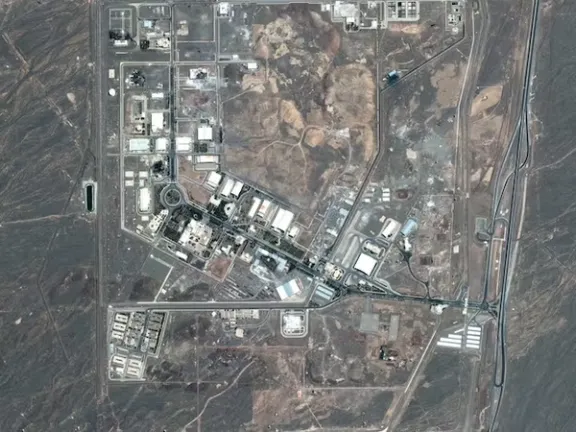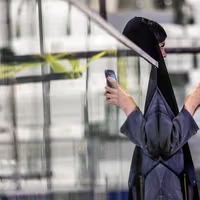Son Of Slain General Says Revenge Against Israel Is Up To Khamenei
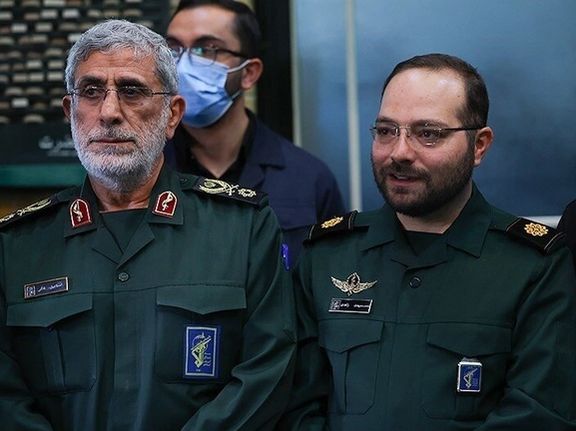
The son of the Iranian Revolutionary Guard commander killed by an Israeli airstrike in Syria said the family will not seek vengeance if the Supreme Leader does not call for it.

The son of the Iranian Revolutionary Guard commander killed by an Israeli airstrike in Syria said the family will not seek vengeance if the Supreme Leader does not call for it.
In spite of Ali Khanenei’s immediate call for action following the last week strike on Iran’s consulate in Damascus, Mohammed-Reza Zahedi’s son, Mohammad-Mehdi -- himself an IRGC major -- said, "We will find reassurance in whatever Khamenei says about revenge, whether it be avenged or not, and we will obey it”.
An unconfirmed, single-sourced report is alleging that Tehran promised Washington it would not retaliate to last week’s Israel’s airstrike if Israel accepts a ceasefire in Gaza.
However, in a message released last week, Khamenei said, “The nefarious regime will be punished by our brave men. We will make them regret this crime and other ones like it, by God's will.”
The attack which also killed six others, has left Tehran grappling with its response. President Ebrahim Raisi convened an emergency session of Iran's National Security Council, but no concrete actions have been announced so far.
Iran has appealed to the UN Security Council condemning Israel's actions in a letter delivered by the nation's deputy representative to the United Nations.
However, apart from diplomatic efforts and ceremonies honoring the fallen officers, Tehran has refrained from further measures.
While some within the Revolutionary Guard circles advocate for a harsh retaliation, others, including Friday Imams, urge caution and "strategic patience."
The prospect of a direct conflict with Israel raises concerns within Iran's political and military establishment, particularly given the nation's already weakened economy.
Already, the currency rial has fallen by 30 percent since early January, and now stands close to 650,000 to the US dollar.

Legal action is being taken against at least one student after hardliners in Iran expressed outrage over a video of female students dancing in their graduation celebration video, which went viral this week.
The students from Al-Zahra University in the southern city of Bushehr were also seen dancing in public and riding motorcycles, activities that are illegal for women in Iran with the hardline government cracking down ever harder on women’s freedoms from behavior to dress codes.
Zahra Hajiani, the dean of Al-Zahra University, responded to the video, stating that university security forces were investigating the incident.
In an interview with the Iranian Students News Agency (ISNA), Hajiani said that “no official graduation ceremony had been held at the university due to the COVID-19 pandemic and financial constraints.”
She added that “the video was organized independently by a few graduating students without coordination or permission from the university.”
Hajiani announced that the university is currently investigating the matter, and the student responsible for filming the video has been identified.
Labeling the graduation celebration as "illegal," Hajiani asserted that the university administration would pursue legal action.
The incident underscores the ongoing crisis surrounding the mandatory hijab and women's social freedoms in Iran.
Iran imposes its interpretation of religion on women through judicial rulings and heavy penalties, restricting their right to choose their clothing and lifestyles. Despite increasing civil opposition, particularly evident after the protests of 2022, social restrictions on women have deepened from covert surveillance to increased morality police patrols and arrest.
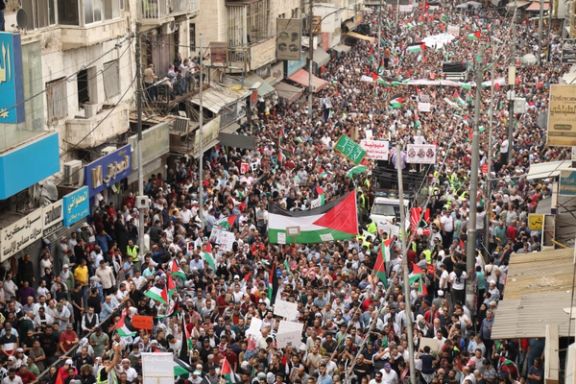
The Islamic Republic of Iran is stoking violent discontent against the Hashemite Kingdom, with a view toward gaining control over Jordan as part of an expanded “Shiite Crescent.”
A new April analysis by the US-based Middle East Media Research Institute (MEMRI) of the pro-Hamas demonstrations on the streets of Amman sounded the alarm bells about the role of Iran’s revolutionary Islamic ambitions in Jordan.
According to the report authored by Ayelet Savyon, the Director of the MEMRI Iran studies project, “In recent days, the grand Iranian plan is emerging – the plan with which the Islamic revolutionary regime is continuing despite the killing, in Israeli air strikes, the senior command of its IRGC Qods Force in Syria and Lebanon. The upcoming stage of this plan involves bringing down the regime in Jordan, attacking Israel from the east while Israel is kept busy by Iran-backed resistance forces in Lebanon, Syria, and Gaza. The political aim of this plan is to thwart the Saudi-American project of normalization with Israel.”
She added that “Next in Iran’s sights is the expulsion of American forces from Iraq, and the undermining of the Saudi Kingdom and the Egyptian regime, as Iran actualizes the vision of Islamic Revolution.”
She warned that “It is not clear whether the US administration, which is currently preoccupied with the IDF’s tragic mistaken killing of the World Central Kitchen charity workers, is aware of events that could impact the continued US presence in the region as well as America’s international standing.”
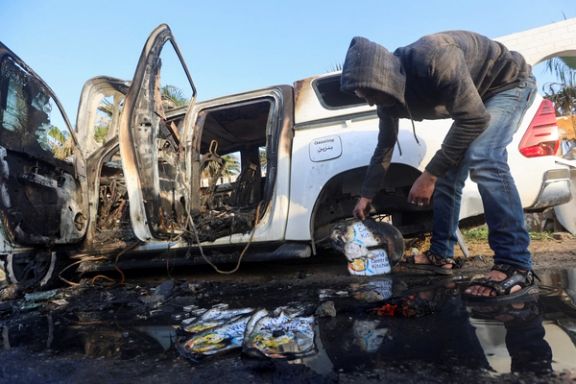
On Saturday, Iran International reported that the Tehran-backed Iraqi Hezbollah battalions are prepared to arm and equip 12,000 fighters of “the Islamic resistance” in Jordan. The Iranian regime-controlled news agency ISNA stated Iranian-backed proxies will supply the 12,000 combatants in Jordan.
Dr. Walid Phares, an expert in foreign policy and the author of Iran, an Imperialist Republic, and US Policy, told Iran International “What is happening in Jordan now, while it appears as chaotic, is in fact tightly organized by Hamas, the larger Muslim Brotherhood network and the Iran regime. The protests against the Israeli embassy and spill over in Amman's streets are the result of tightly coordinated moves by the Iran and Ikhwan [the Arabic term for Muslim Brotherhood] networks, with the real target being the Hashemite Kingdom itself. “
The Gaza-based Hamas movement, the Palestinian branch of the Muslim Brotherhood, is a potent ally of Iran’s regime. The former Muslim Brotherhood president of Egypt, Mohammed Morsi, worked to rekindle relations with the Islamic government of Iran.
Phares, who served as a national security advisor to US Presidential nominees, added, “Tehran always considered the kingdom as an advanced US ally in the region threatening the Iranian militias in Syria and Iraq, and a forward base for US and allied troops in the region. In fact, American and British troops have bases in Jordan that support Coalition activities in the whole region. Remember that the pro Iran militias have targeted a US base on the Jordanian border with Syria.”
The Mideast expert said, “Hence we know that Tehran and Damascus have been targeting the Hashemite kingdom for years and now it looks like they've unleashed their supporters against the regime.”
“The problem seems to be in Washington because of foreign policy decisions since the catastrophic withdrawal from Afghanistan. It was a cascade of encouragement to jihadists and pro-Iranian forces. Jordan is getting close to a possible large domestic clash caused by Hamas, Iran, and a result of an administration that put a transaction with the Iran regime above the national security interest of America and the stability of its direct allies in the region,” Phares said.
Former Israeli Ambassador Jordan, Jacob Rosen, who lived in Jordan for nine years, told Iran International that Iran has been many years “trying to push their way” into Jordan. He said “in south Jordan in Karak there is a holy grave for the Shiites.” He added “They [the Iranians] are always pushing Jordan to open the borders to bring tourism. The Jordanians resist the idea because they know what it means.”
The town of Mu'tah in the Karak Governorate was the location of a famous battle in 629 CE between Arab Muslims and Christians. A cousin of the Prophet Muhammad, Jaʿfar ibn Abī Ṭālib, was killed during the battle.
Rosen pushed back against the oft- cited Western journalistic narrative that Jordan is a fragile country. He said many other Arab governments “are soldiering on. What is fragile? There are no beggars in the streets and no hunger. The tribal networks are very strong. “
He added “The Jordanian government and the people are very strong and aware of the challenges. And if they need extra help from other countries, they get it.”
In a January 2024 article titled “Jordan and the Iranian Affiliates Drug Offensive,“ Rosen wrote with his co-author, Shaul Shay, a former deputy head of Israel’s National Security Council, that “In last year Tehran begun to target the Hashemite kingdom of Jordan, one of the main Western allies in the region. Iran and its affiliated terrorist groups are leveraging the war in Gaza to undermine the stability and sovereignty of Jordan and the peace agreement between Jordan and Israel.”
According to the article, “Iran’s presence in Syria and Iraq provides it the ability to penetrate from two directions with proxy forces and Syrian…make it easy to exploit internal divisions. The smuggling of drugs and weapons from Syria to Jordan is seen as an attempt by Iran to expand its influence in the region and destabilize Jordan.”
The Israeli experts stressed that “Given the strategic importance of Jordan in the Middle East, it is imperative to closely monitor Iran’s actions and alliances and supporting Jordan’s stability through diplomatic, economic and military means.”
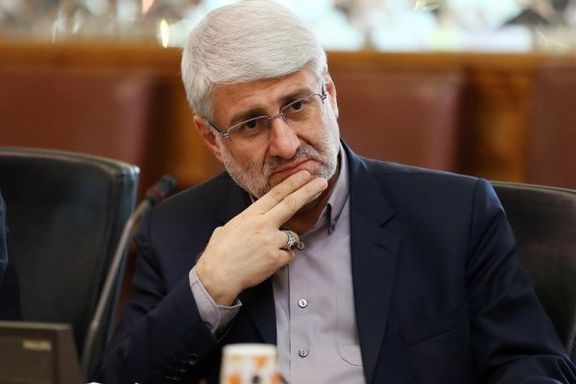
MP Mohammad Hossein Farhangi has attributed the recent surge in Iran's exchange rate to heightened concerns following Israel's recent attack.
Farhangi said, “Israel's efforts to escalate tensions had psychological impacts on various markets.”
Last week Israel struck the Iranian consulate in Damascus killing a key IRGC commander and several other staff at what is believed to be a major IRGC center hidden within the diplomatic compound.
Over the weekend, Iran's currency, the rial, experienced another historic low, breaching the 650,000 threshold to reach 653,000 per US dollar. The spike represents a nearly 30 percent decline for the rial since the beginning of January, marking the highest exchange rate ever recorded for the American currency in Iran.
The increased tensions with Israel have fueled fears of potential Iranian retaliation with calls all the way to the Supreme Leader to strike back, further driving up the price of the US dollar in Iran. However, the exchange rate slightly dropped to 647,000 on Monday as Iranian officials exercised caution in their response to the attack.
The devaluation of the Iranian rial has been a persistent trend since the 1979 revolution, with a significant escalation occurring in 2018 following the US withdrawal from the JCPOA nuclear deal and the imposition of sanctions on Iran's oil exports and banking sector.
In 1978, the rial was valued at 70 rials per dollar. Over the years, the continuous devaluation has exacerbated inflationary pressures, pushing millions of Iranians below the poverty line. While official government figures suggest an annual inflation rate of over 40 percent, many experts believe the actual rate to be even higher, exacerbating economic challenges for ordinary Iranians.
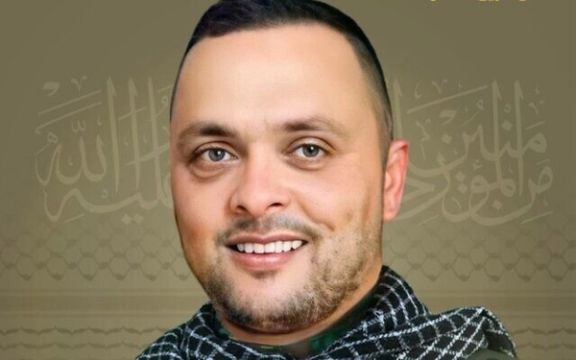
An Israeli strike on southern Lebanon early on Monday killed a field commander in the heavily-armed Iran-backed Lebanese group Hezbollah, as the United Nations warned that shelling was spreading.
Hezbollah and the Israeli military have been exchanging fire across Lebanon's southern frontier in parallel with the Gaza war, adding to fears of a wider regional conflict.
Early on Monday, Israeli fighter jets hit the village of al-Sultaniyah and killed a field commander in Hezbollah's elite Radwan units and two other people, the Israeli military and two Lebanese security sources said.
The Israeli military identified the commander as Ali Ahmed Hassin, and said he was responsible for planning and executing attacks against Israelis. Hezbollah issued a funeral notice for Hassin but without details of his role.
Israeli strikes have killed around 270 Hezbollah fighters in the last six months as well as around 50 civilians, including children, medics and journalists. Hezbollah's rocket fire has killed around a dozen Israeli soldiers and half as many civilians.
In a joint statement on Monday, United Nations' Special Coordinator for Lebanon Joanna Wronecka and the commander of the UN peacekeeping mission in Lebanon, Aroldo Lazaro, said the violence must stop.
"The unrelenting cycle of strikes and counterstrikes in breach of the cessation of hostilities constitute the most serious violation of Security Council Resolution 1701 since its adoption in 2006," they said.
That UN decision ended a month-long war between Hezbollah and Israel nearly two decades ago but many of its points - including a withdrawal of armed groups from the south and deployment of Lebanese army troops - were never implemented.

The head of Iran’s Atomic Energy Organization, Mohammad Eslami, has said the country is entering a new phase in its nuclear development.
Speaking on the occasion of National Nuclear Technology Day, Eslami emphasized ongoing progress in the development of nuclear reactors, particularly highlighting the current stage of concrete pouring.
"We will witness the first concrete pouring at Phase 3 of Bushehr Power Plant in the month of May," stated Eslami.
Earlier statements from Eslami outlined Iran's ambitious plans, including a $50 billion investment for constructing new nuclear power plants capable of generating 10,000 megawatts of electricity. However, this capacity remains insufficient to meet the country's total energy needs.
Iran's heavy reliance on nuclear energy stems from decades of neglecting investment in alternative power sources, particularly renewables. This lack of diversification leaves the country vulnerable to energy shortages, especially considering its isolation in the global community.
Currently, Russia stands as Iran's sole partner in the nuclear industry. The Bushehr power plant, commissioned by Russia in 2011, operates one unit generating 1,000 megawatts, contributing less than two percent of Iran's total electricity output. However, construction projects for phases two and three of the Bushehr Nuclear Power Plant have reportedly accelerated.
The Bushehr reactor remains unaffected by the ongoing nuclear dispute between the West and Iran, as Russia manages the nuclear fuel cycle for the facility. However, Iran has continued its uranium enrichment activities and accumulation of purified fissile material at other undisclosed locations I spite of sanctions.
